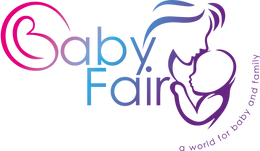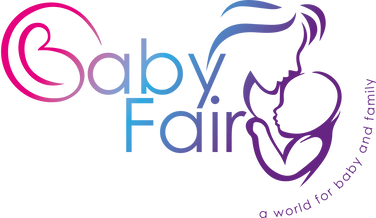All You Need to Know about Weaning

Are you thinking about when to introduce solid foods to your little one? This article is designed to guide you all about weaning and its essentials!
What is Weaning?
Weaning is transitioning a baby from breast milk or formula to solid foods. It is regarded as a significant developmental milestone for a baby because it marks the start of their journey towards a more varied and adult-like diet. Weaning usually begins around six months, though the exact timing varies from baby to baby.
Moreover, weaning can be a time taking process because the baby gradually gets introduced to solid foods while still consuming breast milk or formula. Alternatively, the baby may transition more abruptly by stopping breastfeeding or formula and switching to solid foods.
What is the Suitable Time To Start Weaning?
As a new mum, knowing the appropriate time to start weaning is essential. The World Health Organization (WHO) recommends breastfeeding babies exclusively for six months and introducing complementary foods for up to two years. As a result, weaning should generally begin around six months of age, when the baby develops the skills needed to eat solid foods.
Is Your Baby Ready to Accept Solid Foods?
Let's come to the critical question; how do you know your baby is ready to start weaning? Are there any signs that the baby shows? Yes, if your baby is around six months or older, he/she may exhibit symptoms that can tell you it's time to introduce them to solid meals!
Indications that Show Your Baby Wants to Wean
If your baby shows the following signs, they are ready to wean.
- The baby can sit up and keep their head steady.
- The baby has excellent tongue control and can move food from the front to the back of their mouth.
- The baby has shown an interest in solid foods by reaching for food or watching others eat.
- The baby is no longer content with breast milk or formula alone and appears to be hungry more frequently.
So, keep your eyes on the signs mentioned above so that you will get the accurate time for weaning.
Furthermore, It is important not to begin weaning before six months, as a baby's digestive system may not be mature enough to handle solid foods. However, starting too late can also be a problem because the baby may get deficient in nutrients if it feeds on breast milk or formula alone.
Before starting weaning, consult a pediatrician, especially if your baby has any underlying health conditions or developmental delays, so that the pediatrician can advise on the best time to begin weaning and how to safely introduce solid foods.
Approaches of Weaning
There are mainly two approaches to weaning. One is a "parent-led" approach, and the other is a "baby-led" approach to weaning. Let's look at these approaches, so you can choose the best one to wean your little one!
Traditional Approach of Weaning
The traditional weaning or "parent-led" method entails gradually introducing solid foods into a baby's diet while continuing to breastfeed or formula feed.
Weaning introduces single-ingredient, pureed, or mashed foods such as fruits, vegetables, and cereals in this approach.
As your baby grows and develops eating skills, you can gradually reduce the amount of breast milk or formula while increasing the consumption of solid foods. While weaning may take several months, you should continue breastfeeding or formula-feed until your baby receives adequate nutrition from solid foods.
Baby-Led Approach to Weaning
If you want your baby to lead the journey of weaning, you can do that through a baby-led approach, in which you give your baby a variety of finger foods; that they can grasp and chew on, such as soft fruits, vegetables, and cooked meats.
Instead of pureeing or mashing foods, you can give whole foods to your baby that they can pick up and eat on their own, allowing them to get familiar with new flavours and textures at their own pace.
In addition, the baby is encouraged to feed themselves and can choose how much and what they eat. Therefore, in a baby-led approach, you provide a safe and supportive environment to make your baby successful on the weaning journey!
The first foods of Your Baby
Before weaning, you must know the foods you can give your baby at the start of their eating process. Here, we enlist the foods that you can introduce in weaning.
Cereals: To start with weaning, mix or mash up the oatmeal, rice, or millet into a soft texture by mixing it with breast milk or formula milk.
Soft Fruits: You can also start weaning with soft fruits such as bananas, mango, avocados, or blueberries by turning them into a pureed form or give as finger food to your baby.
Cooked or Soft Vegetables: You can use potatoes or carrots in pureed or mashed form to make up meals or use these vegetables as finger food.
Foods You Should Avoid
It is crucial to know about the foods that should be avoided while starting weaning. They might be harmful to the sensitive digestive system of your baby. Here are they:
- Unpasteurised dairy Products
- Whole Nuts
- Cow's Milk
- Honey
- Undercooked eggs
- Sugary or Salty Foods
Potential Risks of Weaning
While weaning is a gradual process and an important milestone of a baby's development. However, It may cause some risks that you should be aware of. Let's talk about these:
- Nutritional deficiencies: If a baby is not exposed to a diverse range of nutrient-rich foods, he or she may not receive all the nutrients required for healthy growth and development.
- Allergic reactions: When new foods are introduced, the risk of allergic reactions increases. So, it is critical to watch for any signs of an allergic reaction, such as hives, vomiting, or difficulty breathing.
- Gastrointestinal Problems: As the babies adjust to solid foods, they may also experience gastrointestinal issues such as constipation, diarrhea, or upset stomach.
- Emotional Stress: Weaning can be an emotional experience for you and the baby. During this transition, being patient and sensitive to your baby's needs is critical.
- Increased risk of infection: If proper hygiene is not followed when preparing and handling food, weaning can develop the risk of infection.
FAQs
Can I start weaning before six months?
Weaning before six months is not recommended by medical experts. Bbay should be breastfed exclusively for six months.
Is any special equipment needed for weaning?
Yes, to start your baby's weaning, you may need the following equipment:
- Blender
- Baby High Chair
- Bibs, clothes, or wet wipes
- Baby plastic bowls and spoons
What are the three stages of weaning?
Stage 1 is the introduction to solid foods that lasts around the first six months; Stage 2 includes more taste and textures of food that lasts till seven months; while in the third stage, the baby is given a variety of family foods that lasts till 9-12 months.
Shop Now for a Variety of Weaning Accessories at Baby Fair and begin Successful Weaning Today!
SHARE:

